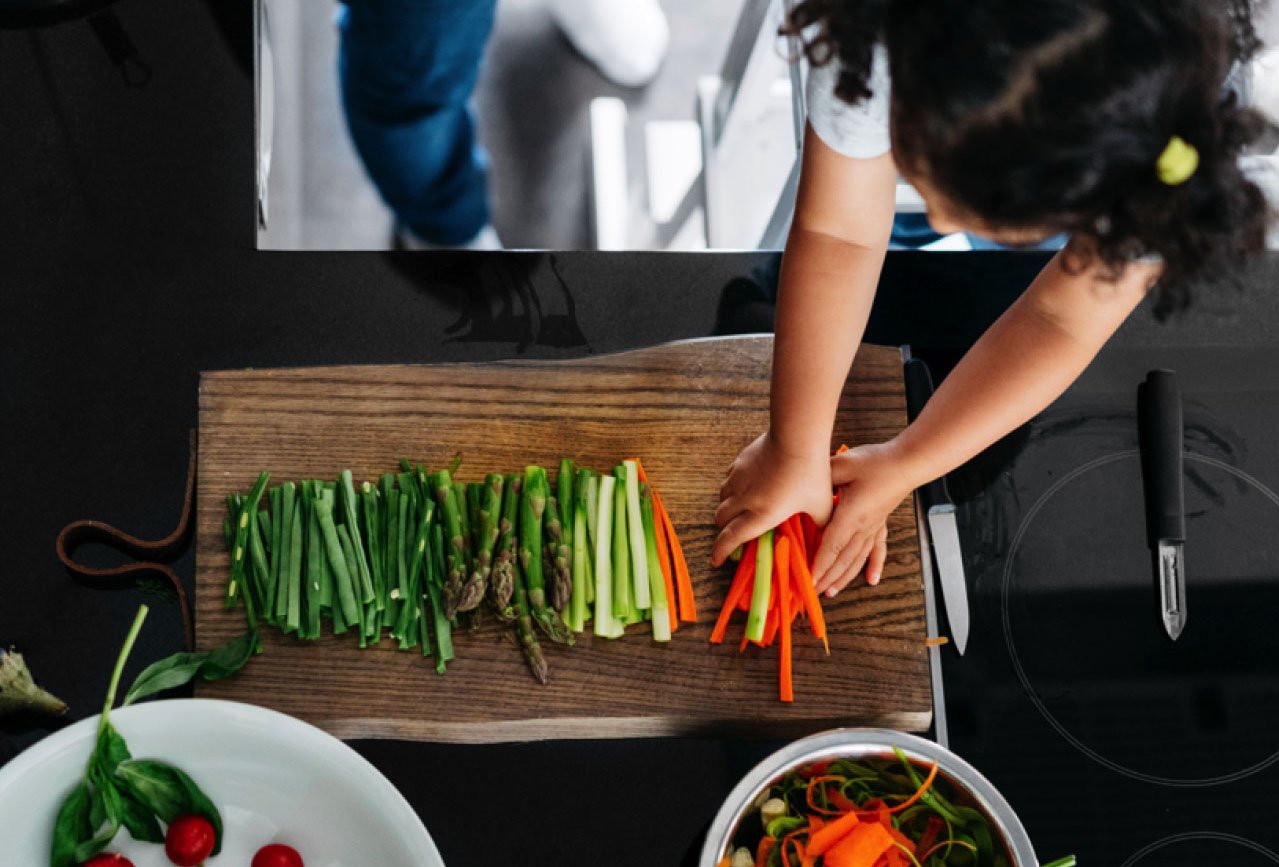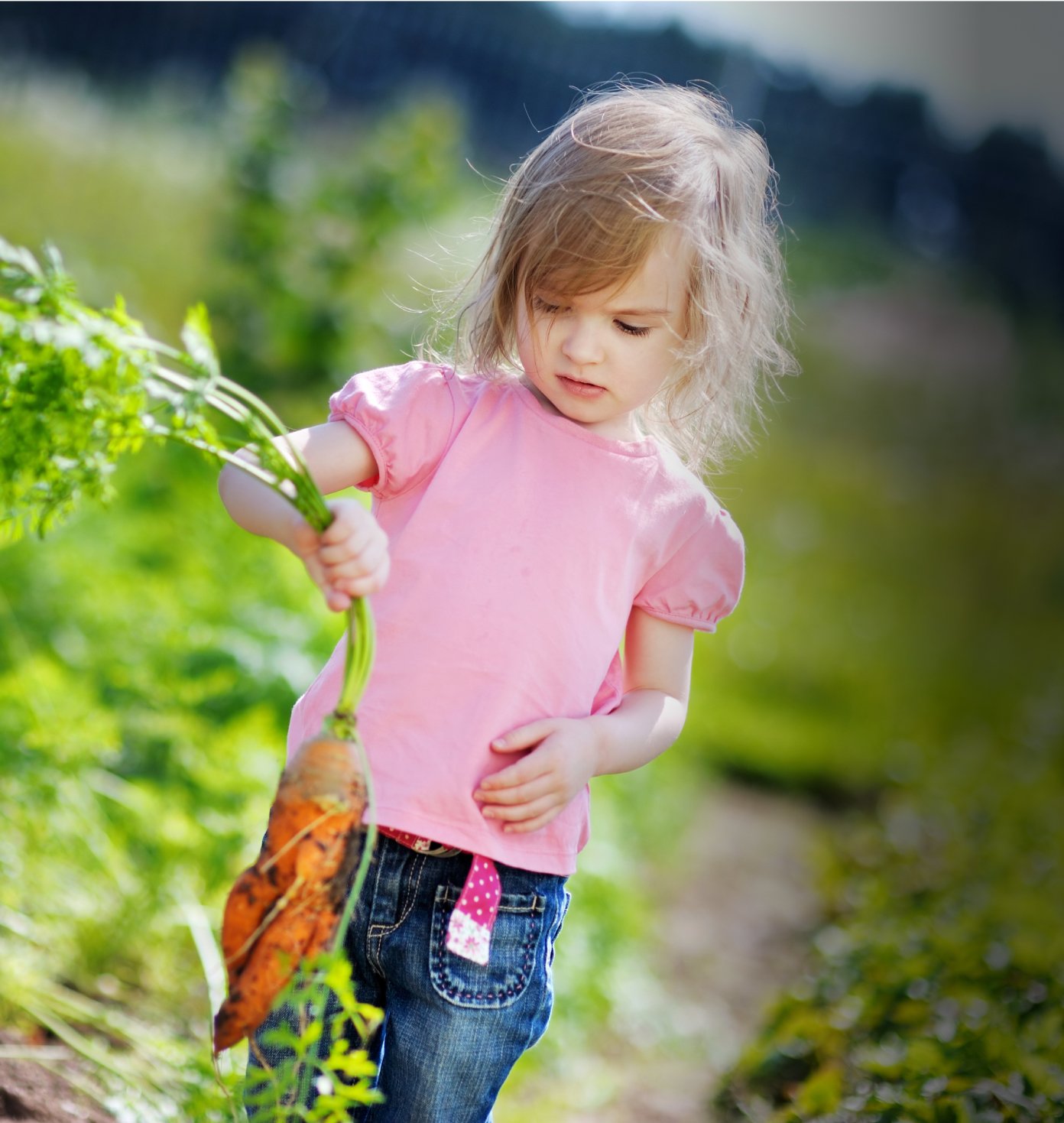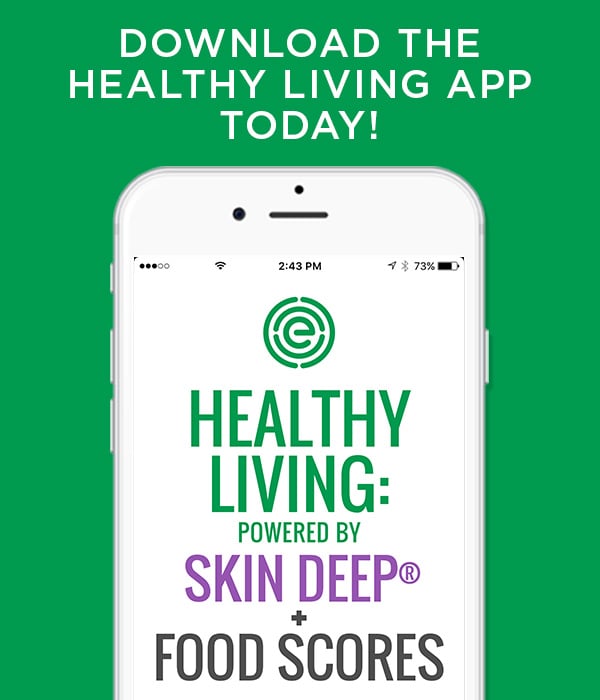20 years of EWG’s Shopper’s Guide to Pesticides in Produce™
PLUS OVER 30 YEARS OF RESEARCH ON PESTICIDES AND CHILDREN’S HEALTH
EWG has released its Shopper’s Guide to Pesticides in Produce™ almost every year since 2004. But we’ve been fighting for consumers’ right to live healthier lives in a healthier environment since 1993.
That was the year the National Academy of Sciences, Engineering, and Medicine published a landmark report, “Pesticides in the Diets of Infants and Children,” concluding that “infants and children differ both qualitatively and quantitatively from adults in their exposure to pesticide residues in foods,” and that pesticides in the diets of some children exceeded safe levels.
Shortly thereafter, EWG released its first report, “Pesticides in Children’s Food,” which analyzed federal government consumption data and pesticide tests of more than 20,000 samples of food, among other government and industry data. The exhaustive investigation found that millions of U.S. children were receiving up to 35 percent of their entire lifetime dose of some carcinogenic pesticides by age 5.
The exposé played a pivotal role in Congress’ passage of the Food Quality Protection Act, in 1996. This law gave the Environmental Protection Agency the regulatory authority to ensure that the pesticides used in our food system do not harm our most vulnerable populations – infants and children.
EWG is proud to have played a role in this landmark legislation, but our work is far from done.
Legal doesn’t mean safe
EWG is concerned about pesticides on produce because they are toxic by design, created expressly to kill living organisms – insects, plants and fungi considered “pests.”
But many pesticides pose health dangers to people, too, including cancer, hormone disruption, harm to the reproductive system, and brain and nervous system toxicity. These hazards have been recognized by independent scientists and U.S. and international government agencies.
Most pesticide residues found by the Department of Agriculture and Food and Drug Administration on fresh produce – the tests whose results EWG uses to compile its Shopper’s Guide every year – fall below government limits and thus are legal. But legal limits don’t always represent what’s safe for human consumption.
Over the past 30 years, the EPA has banned or restricted some highly toxic pesticides. But at EWG, we think many others in widespread use should be banned or their use curtailed.
Many pesticides still legal for use in the U.S. have been banned in the European Union because of the science showing threats to human health and wildlife.
How to fix the broken pesticide regulatory system
EWG is a staunch advocate of stronger federal pesticide regulations. The EPA’s safety levels, called “tolerances,” are intended to help agency regulators determine whether farmers apply pesticides properly. But these levels do not necessarily mean they are safe.
Children are especially susceptible to many of the health harms associated with pesticide exposure. In fact, peer-reviewed research released by EWG in 2020 found that the EPA fails to adequately consider children in setting allowable levels of exposure for 90 percent of the most common pesticides.
EWG has asked the EPA to meet its legal requirement under the Food Quality Protection Act to protect children’s health by applying an extra margin of safety when assessing risks from pesticides in food.
And EWG urges the USDA and the FDA to more regularly test all produce for pesticide residues and ensure they test for all pesticides commonly used in agriculture. Federal agencies’ pesticide residue monitoring and dietary surveys do not adequately capture the variety of pesticide exposures Americans face.
Why EWG focuses on pesticides in food
At EWG, we think consumers have the right to know what they’re being exposed to and what they can do about it – which is why we have released our Shopper’s Guide to Pesticides in Produce most years since 2004.
We’ll keep publishing it as long as pesticides remain in use and turn up on produce.
And we’ll keep investigating all the chemicals that can harm humans – especially children – as part of our ongoing fight for consumers’ right to live healthier lives in a healthier environment.
What the experts are saying
Here are some of the many independent endorsements for our work.
The American Academy of Pediatrics
The American Academy of Pediatrics recommends the Shopper’s Guide to pediatricians consulting with parents about reducing pesticide exposures in their children’s diets.
Dr. Philip Landrigan
“Infants, babies and young children are exquisitely vulnerable to even low levels of pesticide exposure, so it’s important parents and caregivers take steps to safeguard children from these chemicals while also providing them diets rich in healthy fruits and vegetables.
“For many Americans, choosing an all-organic diet is not possible, so using EWG’s guide can help give consumers the tools to provide their families with a mix of both conventional and organic fruits and veggies without the pesticide punch.”
Dr. Philip Landrigan is director of the Program in Global Public Health and the Common Good in the Schiller Institute for Integrated Science and Society at Boston College, a member of the National Academy of Medicine and one of the principal authors of the 1993 National Academy of Sciences study “Pesticides in the Diets of Infants and Children.” The study led to the enactment of the 1996 Food Quality Protection Act, which emphasized the importance of children’s health in the setting of safety standards for pesticides on foods.
Dr. Chensheng (Alex) Lu
“Research that I and others have conducted clearly shows children can dramatically reduce the levels of pesticides in their bodies by eating organic fruits and veggies, or those conventional versions that regularly have far fewer pesticide residues. However, when an all-organic diet is not an option, one way to give children a healthy diet with plenty of fresh produce is to consult EWG’s Shopper’s Guide. This guide helps parents to choose between organic and conventional options at the grocery store.”
Chensheng (Alex) Lu, Ph.D. , is a nationally recognized professor of Environmental Exposure Biology in the Department of Environmental Health at the Harvard T.H. Chan School of Public Health. He has conducted numerous studies on the impact of pesticide exposure through diet on people, including children.
Dr. Andrew Weil
“I am pleased to have an ongoing partnership with EWG, a nonprofit organization that advocates for policies that protect global and individual health. Specifically, I am honored to help EWG spread the word about one of its most valuable pieces of research – the Shopper’s Guide to Pesticides in Produce.”
Dr. Andrew Weil is a renowned medical expert on natural health and wellness, and founder and director of the Andrew Weil Center for Integrative Medicine at the University of Arizona.
Laurie David
“EWG’s Shopper’s Guide to Pesticides in Produce recognizes that many people who want to reduce their exposure to pesticides in produce cannot find or afford an all-organic diet. It helps them seek out conventionally grown fruits and vegetables that tend to test low for pesticide residues. When they want foods whose conventional versions test high for pesticides, they can make an effort to locate organic versions.”
Laurie David is an environmental advocate and honorary trustee of the Natural Resources Defense Council. She produced the Academy Award–winning documentary “An Inconvenient Truth” and the film “Fed Up,” about the obesity epidemic in the U.S.
Kris Carr
“Even if it’s not every time you get groceries, each organic purchase is a vote for better health and policies. The Environmental Working Group has a handy guide to the most chemical-heavy fruits and vegetables, the Dirty Dozen™, and the least, the Clean Fifteen™, when these foods are grown conventionally.”
Kris Carr is a New York Times best-selling author, speaker, and health and wellness advocate and a cancer thriver. She directed the well-received documentary “Crazy Sexy Cancer” about her own battle with the disease.
Marion Nestle
“If you want to avoid eating pesticides, you can stick with the EWG Clean Fifteen. Washing produce before eating it is always a good idea, even if it doesn’t get rid of all of the chemicals – USDA studies are done on washed produce. When in doubt, buy organic.”
Marion Nestle is the Paulette Goddard Professor of Nutrition, Food Studies, and Public Health, Emerita, at New York University. She is a noted expert in the area of food policy and the award-winning author of numerous books on food and food policy.
Mark Bittman
“If I were of child-rearing age now, or the parent of young children, I would make every effort to buy organic food. If I couldn’t do that, I would rely on the Environmental Working Group’s Guide to Pesticides in Produce. Their Dirty Dozen lists those fruits and vegetables with the highest pesticide residues, and their Clean Fifteen notes those that are lowest. But regardless of age, we need to stay awake and remember that the dangers of pesticides are as real now as they were half a century ago.”
Mark Bittman is a nationally recognized authority in the area of food, a former columnist for The New York Times and the author of more than a dozen cookbooks, including the bestselling “How to Cook Everything.”
Dr. Mark Hyman
“Eat organic whenever you can. Follow the Environmental Working Group’s list of Dirty Dozen and Clean Fifteen to identify the worst and least contaminated fruits and vegetables.”
Dr. Mark Hyman has dedicated his career to identifying and addressing the root causes of chronic illness through a groundbreaking, whole-systems approach known as functional medicine. A family physician and five-time No. 1 New York Times bestselling author, he is an internationally recognized leader, speaker, educator and advocate in his field. He sits on EWG’s board of directors.











